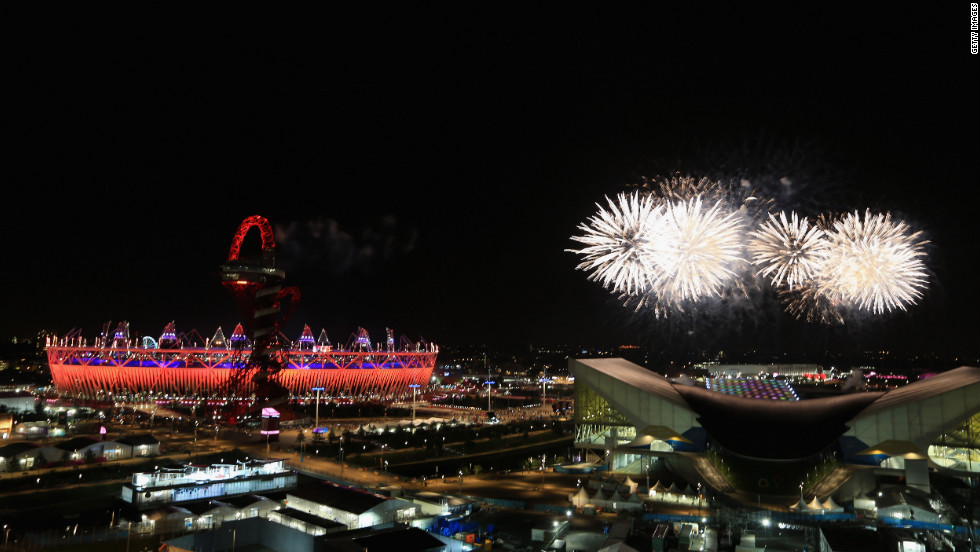Olympic Closing Ceremony

Fireworks light up the Olympic stadium during the closing ceremony.
-
The London 2012 Olympic Games Closing Ceremony started at 9pm on 12 August 2012 and celebrated the amazing sporting feats of the athletes who have taken part in the Games with the ultimate aftershow party.
The Ceremony featured more than 4,100 performers, including 3,500 adult volunteers and 380 schoolchildren from the six east London Host Boroughs, and showcased the great creative talent of the UK in a fun, colourful and festive atmosphere.
Following an introduction to daily life in London, the athletes entered the Olympic Stadium and volunteers were thanked. ‘A Symphony of British Music’ followed to celebrate the fact that music has been one of Britain’s strongest cultural exports over the last 50 years.
At the end of the Ceremony, the Olympic Games were handed over to Rio de Janeiro for the 2016 Olympic Games, and the Olympic Flame was extinguished, signalling the end of the London 2012 Olympic Games.
-
-
The London 2012 Olympic Games Closing Ceremony started at 9pm on 12 August 2012 and celebrated the amazing sporting feats of the athletes who have taken part in the Games with the ultimate aftershow party.
The Ceremony featured more than 4,100 performers, including 3,500 adult volunteers and 380 schoolchildren from the six east London Host Boroughs, and showcased the great creative talent of the UK in a fun, colourful and festive atmosphere.
Following an introduction to daily life in London, the athletes entered the Olympic Stadium and volunteers were thanked. ‘A Symphony of British Music’ followed to celebrate the fact that music has been one of Britain’s strongest cultural exports over the last 50 years.
At the end of the Ceremony, the Olympic Games were handed over to Rio de Janeiro for the 2016 Olympic Games, and the Olympic Flame was extinguished, signalling the end of the London 2012 Olympic Games.
-
The President of the IOC and the President of the Organising Committee
of the Olympic Games mount the rostrum. To the sounds of the Greek
national anthem, the Greek flag is hoisted on the flagpole to the right.
The flag of the host country is then hoisted on the central flagpole
while its anthem is played. Finally, the flag of the host country of the
next Olympic Games is hoisted on the left flagpole to the strains of
its anthem.


No comments:
Post a Comment